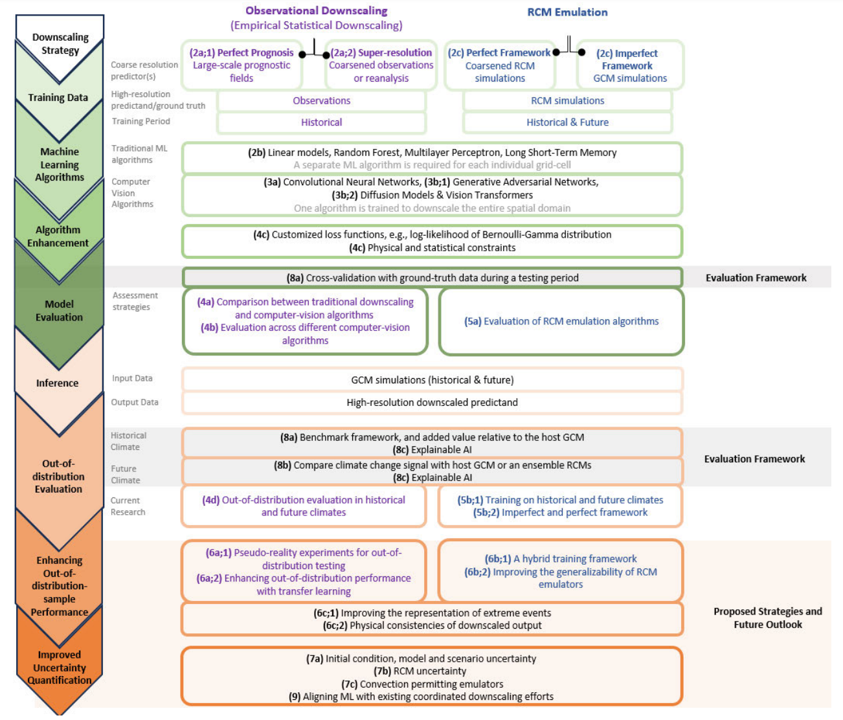CW3E Publication Notice
Enhancing Regional Climate Downscaling Through Advances in Machine Learning
April 4, 2024
CW3E postdoctoral researcher Jorge Baño-Medina recently published a co-authored article titled “Enhancing regional climate downscaling through advances in machine learning” in Artificial Intelligence for the Earth Systems. This review article was led by researchers from the National Institute of Water and Atmospheric Research (New Zealand), along with researchers from the Santander Meteorology Group (Spain), the Climate Change Research Centre and ARC Centre of Excellence for Climate Extremes (Australia), the Faculty of Geosciences and Environment (Switzerland), the National Center for Atmospheric Research (USA), and the Fraunhofer ITWM (Germany). The work aligns with CW3E’s 2019-2024 Strategic Plan to support Monitoring and Projections of Climate Variability and Change using Emerging Technologies.
Despite the sophistication of Global Climate Models (GCMs), their coarse spatial resolution limits their ability to resolve important aspects of climate variability and change at the local scale. Statistical downscaling aims to bridge the gap between the global and the regional-to-local scales by learning an empirical function using large records of data. In the last few years, deep learning (DL) topologies have emerged as potential statistical downscaling tools, due to their ability to learn complex patterns from data. This study summarizes the existing literature about statistical downscaling of climate change scenarios by means of DL, offering a thorough exploration of the current applications, and training strategies that can circumvent existing limitations of statistical downscaling models (e.g., generalization to out-of-distribution spaces or extrapolation to climate change scenarios).
Figure 1. below illustrates the structure of the manuscript and the topics covered in the review. First, we provide an overview of empirical downscaling and we introduce computer-vision based climate downscaling algorithms. Then, we discuss recent machine learning (ML) advances in observational downscaling and Regional Climate Model (RCM) emulation, together with strategies to enhance the out-of-distribution performance of the models. Finally, we outline various future research directions and present an evaluation framework for ML-based empirical downscaling algorithms.
Figure 1: Adapted from Figure 2 in Rampal et al. (2024) An overview of the topics concerning climate downscaling that are discussed in this review article.
Rampal, N., Hobeichi, S., Gibson, P. B., Baño-Medina, J., Abramowitz, G., Beucler, T., … & Gutiérrez, J. M. (2024). Enhancing Regional Climate Downscaling Through Advances in Machine Learning. Artificial Intelligence for the Earth Systems. https://doi.org/10.1175/AIES-D-23-0066.1

